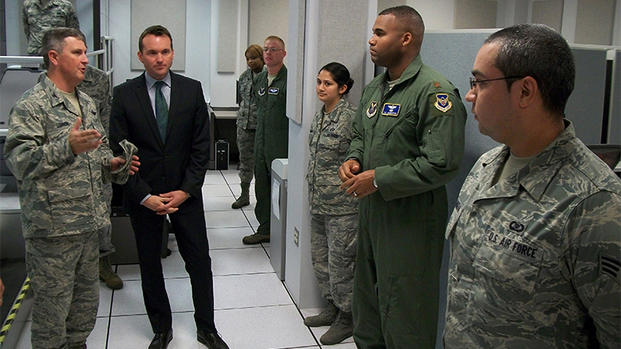I am a member of a perfectly average military family. There's really nothing I can do about it -- except hold up the not-average around me.
I am as vanilla as they come. Female, white, two kids, dog, wears a pair of treasured Uggs in the winter, likes coffee and long walks on the beach. What can I say? I cannot personally advance diversity in the military simply by being a military family member. It's just not going to happen.
That I am me is in no way bad. But I am one person. I definitely don't represent everyone. Yet for a long time, the traditional military has been predicated on the idea that most people are exactly like me -- and that that will continue to be true going forward.
That is simply not true, said Secretary of the Army nominee Eric Fanning at a recent gala.
"Our military personnel system is based on a 1950's family ... and to me what that meant was typically a male, with a trailing spouse wife – doesn’t have a job, that does something that can move from base to base, so that she can shut down the house, open the new house, get the kids out of school, get the kids into a new school," Fanning said. "Increasingly that model is divergent from what society is, and the direction society is headed in now, and we’ve got to keep doing more to bridge that gap."
Fanning spoke at the annual American Military Partner Association (AMPA) gala in Washington, D.C. early this month. An all volunteer-run LGBT military family organization 45,000 strong, AMPA works to help gay families in the constantly changing but still not that diverse military world.
What Fanning said Secretary of Defense Ashton Carter is trying to do, in part, with his Force of the Future plan, and what AMPA works to do every day, is push military leaders to see the military as what the force and society actually are -- not all vanilla.
"It's a small part of what Secretary Carter talks about when he talks about the force of the future. He looks at the now and the 1950's family structure, and other things, and he looks at society today and certainly in 10, 20, 30 years from now, and he sees that gap widening," Fanning said. "What we need to do is reverse that trend."
To me, it's not so much that the military isn't diverse already. It's that we have a habit of not acknowledging it, and of expecting everyone to behave and look like that 1950's family when they simply don't.
Acknowledging diversity means we should expect spouses at every level -- from the very junior service members to the very senior ones -- to have jobs if they want them, and not be surprised when the commander's wife doesn't respond to emails during the middle of the day or show-up at surprise meetings because she's at work. That means we should use inclusive language as much as possible and make people feel like they belong, while still operating in the realm of reality that, yes, often, we are still talking about women and it's not always going to be gender neutral.
And it means we should acknowledge and accept that, yes, sometimes our military families don't look exactly like me or you -- and that's perfect because it makes our military life not just more interesting, but creates a more effective fighting force through new perspectives, backgrounds and cultures.









